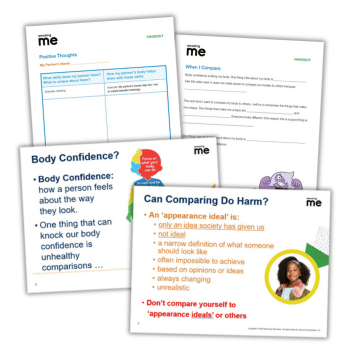Teacher retention – why I left the best job in the world

Simeon Crowther explains the journey he took to leave his classroom behind after 13 years

“What do you do now?”
It’s the first question everyone asks when they discover you’ve left teaching. If you’re talking to a fellow educator, they’re usually posing the question because they’re wondering about a possible route out for themselves, to a career with a similar wage but a better work-life balance.
If the question comes from someone outside education who doesn’t know any teachers and hasn’t seen the inside of a classroom for 20 years, they’re simply incredulous that anyone would give up ‘those holidays’.
What sort of a job could possibly be better than one which offers all that time off, right?
They don’t realise that half term breaks, for many teachers, amount to the briefest of pauses for breath, and that many of the longer holidays are spent in a state of dazed shell-shock or trembling trepidation at a fast-approaching tidal-wave of work.
But the question comes thick and fast. For example, during my long notice period, I was chatting to some of the children.
Such is my Wookie-like build, I served as an excellent additional item of playground equipment. When the school field was water-logged and the actual climbing frames were inaccessible, my presence on one corner of the tarmac was particularly welcome.
While suspended upside down from my arms and weaving in and out of my legs, the children would chat and laugh and ask endless questions about all manner of things.
“Are you married?”, “Where do you live?”, “Why are your shoes so big?”, “Where’s your hair gone?” That sort of thing.
Having blown the whistle on my teaching career, I miss those playground moments a great deal, though as anyone who’s supervised a playtime knows, you often return to the classroom more exhausted than when you left.
Pausing from his attempts to annex my left leg from the rest of my body, a small boy posed a version of that question: “Mr C? Whatchoo gunna do when you’re not a teacher?”
Why I left teaching
I didn’t know the answer then and, in truth, three months on, I’m still trying to work it out. It is difficult to think about your own future when your every waking thought is about the futures of the children in your care.
My head was a thick fog of lesson plans, timetables, marking, SEN forms, interventions, progress pressure, curriculum re-writes, looming Ofsted inspections, covid disruptions and safeguarding alarm bells.
“I don’t know,” was my honest answer. “What do you think I should do?”
Head tilted to one side, he peered up at me for a moment.
“I fink… boxer!” He said confidently.
To be fair to that little boy, I do look like I’ve been punched in the face a few times and, at that moment, I was out on my feet like a journeyman heavyweight in the tenth round.
Of course, the most important question that needs to be asked is “Why have you left teaching?”
Leaders assume they know the answer, but I was never invited to an exit interview and few people will have seen my formal resignation letter.
I suspect this is not unusual and yet understanding the ‘why’ is vital if individual schools, academy trusts and the profession as a whole are to solve the recruitment and retention crisis.
There are oft-quoted, broad-brush reasons why kind, caring, highly trained and highly skilled professionals leave one of the most remarkable privileges behind. But they are never the whole individual’s story.
We have all taken our own route into teaching at different stages of our lives and there is a specific context to every departure.
For me, there was a tipping point, an epiphany moment after 13 years, when I finally realised what people close to me had long observed; that the demands of the job were utterly overwhelming me.
And so, it was time to go. Though there are regrets and sadness, it is a relief to be free. I am writing this article sitting calmly at my kitchen table on a Monday morning having enjoyed another Sunday without the creeping dread.
I’m in awe of the colleagues I worked with and the remarkable, resilient, kind and talented people doing the job at this very moment in classrooms across the country. It’s nothing short of heroic.
As for what I’m going to do next, who knows? But if you run a company designing and building climbing frames, I’m definitely your man.
Simeon Crowther was a KS1 teacher and science lead in Oxfordshire primary schools for 13 years and left the profession in December 2021. Follow him on Twitter @CrowtherSim











